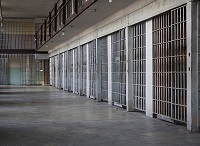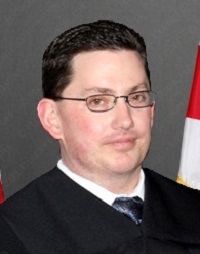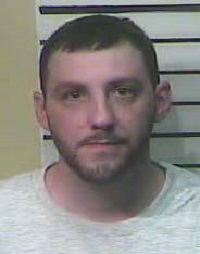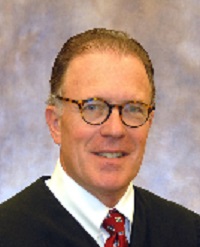The following is the Windsor Petition for Rehearing En Banc. It was copied and pasted here from the Federal Court document. This Petition for Rehearing En Banc shows how judges ignore the law to screw a self-represented litigant (pro se). (It may be easier to read the Petition from the pdf scanned by the Eleventh Circuit.
Judges nationwide HATE Bill Windsor because he is committed to exposing their evildoings. See https://AANL.net for his latest plan to save America from judicial corruption and denial of our Constitutional rights. He has published thousands of articles on LawlessAmerica.com since 2008. He is not a lawyer, and he cannot give legal advice, but he can and does help his friends with his experience.
Please forgive the spacing and numbering because Word and WordPress just don’t always cooperate. Photos and links have been added that are not in the legal Petition.
APPEAL NO. 22-12038 and 22-12411
_______________________________________________________
IN THE UNITED STATES COURT OF APPEALS
FOR THE ELEVENTH CIRCUIT
________________________________________________________
WILLIAM M. WINDSOR,
Plaintiff – Appellant,
versus
James N. Hatten, et al,
Defendants
________________________________________________________
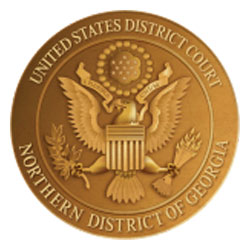
Appeal from the United States District Court
for the Northern District of Georgia, Atlanta Division
D.C. Docket No. 1:11-CV-01923-TWT
Judge Thomas Woodrow Thrash
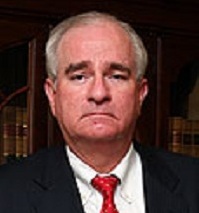
_________________________________________________________
________________________________________________________
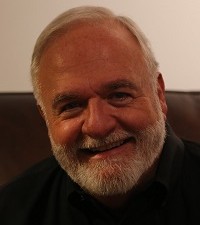
William M. Windsor
5013 S Louise Avenue PMB 1134, Sioux Falls, South Dakota 57108
Phone: 352-###-####, Email: windsorinsouthdakota@yahoo.com
PRO SE FOR PLAINTIFF/ APPELLANT, WILLIAM M. WINDSOR
APPELLANT’S PETITION FOR REHEARING
and en banc determination
William M. Windsor (“WINDSOR”) hereby requests that the Court relieve WINDSOR from the Judgment and OPINION dated 1/25/2024 in USCA11 Case No. 22-12038 and USCA11 Case No. 22-12411, pursuant to Rules 35 and 40 of the Federal Rules of Appellate Procedure (“FRAP”).
- WINDSOR references and incorporates herein the entire dockets and their contents in 1-11-01923-TWT (”01923”) [APPENDIX 128], USCA11 Case 22-12038 (“22-12038”) [APPENDIX 129, and USCA11 Case 22-12411 (“22-12411”) [APPENDIX 130.]
FIRST PARTICULARITY AS TO POINTS OF
LAW AND FACT OVERLOOKED OR MISAPPREHENDED
BY THE SECOND PANEL
- The decisions of the “SECOND PANEL” of the Eleventh Circuit (Judges Robin Rosenbaum, Elizabeth Branch, and Britt Grant) conflict with decisions of every U.S. Court of Appeals, recent decisions in this case [APPENDIX 131 and APPENDIX 132], and Martin-Trigona v. Shaw, 986 F.2d 1384, 1387-88 (11th Cir. 1993); Procup v. Strickland, 792 F.2d 1069, 1079 (11th Cir. 1986); Riccard v. Prudential,307 F.3d 1277, 1295 n.15 (11th Cir. 2002); Klay v. United, 376 F.3d 1092, 1099-1102 (11th Cir. 2004); Dinardo v. Palm Beach Judge, 199 Fed.Appx. 731 (11th Cir. 07/18/2006). Consideration by the full Court is therefore necessary to secure and maintain uniformity of the Court’s decisions.



- The one Appealed Order in 22-12411 is APPENDIX 135. It purports to place restrictions on state courts, so the Appeal must be granted.
- The four appealed orders in 22-12038 are APPENDIX 137, APPENDIX 4, APPENDIX 138, and APPENDIX 135. Each purports to place restrictions on state courts, so the Appeals must be granted.
- Article Three of the U.S. Constitution empowers the courts to handle cases or controversies arising under federal law. Article 3 grants no powers over state courts; a federal order for filing restrictions cannot apply to states.
- WINDSOR has researched “filing restrictions” referencing the three key federal precedents. The decisions in all eleven Circuits appear to be unanimous in providing that federal courts are unable to approve federal courts issuing orders that apply to state courts.
- BUT, there is one and only one circuit that has allowed a federal judge to approve federal courts issuing orders that apply to state courts. It’s the 11TH CIRCUIT, but only in appeals involving WINDSOR.
- WINDSOR could find NO OTHER CASE to support the actions of JUDGE Thomas W. THRASH. There has never been another appellate decision that disagrees with Baum v. Blue Moon Ventures, LLC, 513 F.3d 181, 191-92 (5th Cir. 2008); Sieverding v. Colo. Bar Ass’n, 469 F.3d 1340, 1344 (10th Cir. 2006); and Martin-Trigona v. Lavien, 737 F.2d 1254, 1263 (2d Cir. 1984). See also Procup v. Strickland, 760 F.2d 1107 (11th Cir. 05/20/1985). APPENDIX 21 is a Memorandum of Law on 137 applicable federal cases as of 08/08/2020.
SECOND PARTICULARITY AS TO POINTS OF
LAW AND FACT
- The SECOND PANEL violated the September 7, 2022 Order of this Court [APPENDIX 131] and ignored the Law of the Case Doctrine.
- The SECOND PANEL has outrageously dismissed WINDSOR’s appeals [APPENDIX 133] and [APPENDIX 134] falsely claiming he abandoned them.
- WINDSOR has been pursuing the corrupt acts of JUDGE THOMAS W. THRASH, the U.S. District Court for the Northern District of Georgia, and the Eleventh Circuit, for 15 years. He has never abandoned anything.
- From the first sentence in the Opinions, the SECOND PANEL has shown they have a complete bias against WINDSOR.
- The STATEMENTS REGARDING APPEAL [APPENDIX 139] and [APPENDIX 140] were required to establish that the Appeals were not frivolous, and it was determined by Eleventh Circuit Judges Adalberto Jordan, Jill A. Pryor, and Andrew L. Brasher (“FIRST PANEL”) on 9/7/2022 that the appeals were not frivolous. [APPENDIX 133] and [APPENDIX 134]. They ruled:
“With respect to both the appeal statement associated with appeal no. 22-12038 and the appeal statement associated with appeal no. 22-12411, the Court finds that Appellant has raised a non-frivolous issue, specifically whether a pre-filing injunction may be extended to filings in state court. See, e.g., Baum v. Blue Moon Ventures, LLC, 513 F .3d 181, 192 (5th Cir. 2008). Accordingly, these appeals survive the frivolity screening required by this Court’s December 21, 2011 order.” [emphasis added.] [22-12038-Docket-13-ORDER-Not-Frivolous-Stay-Consolidated-2022-09-07.] [APPENDIX 131.]
- Baum v. Blue Moon Ventures, LLC, 513 F .3d 181, 192 (5th Cir. 2008) was cited by the FIRST PANEL. It says:
“The district court abused its discretion in extending the pre-filing injunction to filings in state courts, state agencies, and this Court.
“Baum argues that even if the injunction is proper for federal courts, ‘[a]buse of state judicial process is not per se a threat to the jurisdiction of Article III courts and does not per se implicate other federal interests.’ Martin-Trigona, 737 F.2d at 1263.
“In Martin-Trigona, the Second Circuit concluded that the district court ‘erred in its blanket extension of the [pre-filing] injunction to state courts….’ [737 F.2d 1254 (2d Cir. 1984).]
“Blue Moon does not cite to any authority that upholds a federal court’s pre-filing injunction against state court and state agency filings.
“The Tenth Circuit held that (2) a district court’s pre-filing injunction may not extend to filings in any federal appellate court, and (3) a district court’s pre-filing injunction may not extend to filings in any state court. Sieverding v. Colo. Bar Ass’n, 469 F.3d 1340, 1344 (10th Cir.2006).”
- Yet in the first sentence of the OPINIONS, the SECOND PANEL stated: “This appeal is the latest in a line of frivolous litigation pursued by William Windsor.” There is no evidence of this. This violates Federal Rules of Evidence (“FRE”) Rule 602. This DIRECTLY contradicts the 9/7/2022 Order of the Eleventh Circuit [APPENDIX 131.]
- There is absolutely NO EVIDENCE that WINDSOR has ever filed anything in any court anywhere that was frivolous. This SECOND PANEL cannot show evidence to the contrary.
- The Eleventh Circuit decided that issue in these cases on 9/7/2022. The “law of the case doctrine” provides that an appellate court’s determination of a legal issue binds both the trial court and the court on appeal in any subsequent retrial or appeal involving the same case and substantially the same facts. The appellate court’s holdings on the questions presented to it on review become the “law of the case.” The purpose of the doctrine is to promote finality and judicial economy by minimizing unnecessary relitigation of legal issues once they have been resolved by the appellate court. Instead, the SECOND PANEL thumbed its nose at judicial economy and created unnecessary litigation.
- WINDSOR will file Judicial Complaints against Robin Rosenbaum, Elizabeth Branch, and Britt Grant.
THIRD PARTICULARITY AS TO POINTS OF
LAW AND FACT
- The Second Panel did not issue an Opinion on one of the Appealed Orders.
- On Page 6 of [APPENDIX 133 and APPENDIX 134] in the next to last paragraph of the “Background” section, each states: “… his appeals were allowed to proceed as to the district court’s May 21, 2022, and June 30, 2022, orders.”
- There is no May 21, 2022 Order as proven by the dockets. [APPENDIX 128, APPENDIX 129, APPENDIX 130.] Therefore, one of the orders appealed has not been addressed, and this PETITION must be granted.
FOURTH PARTICULARITY AS TO POINTS OF
LAW AND FACT
- The SECOND PANEL’s Opinions cause significant confusion as to what in the world they are pretending to say.
- On January 25, 2024, an OPINION was docketed in USCA11 Case 22-12038 (“22-12038”) – DOCKET 50 [APPENDIX 133] and USCA11 Case 22-12411 (“22-12411”) [APPENDIX 134] by this SECOND PANEL
- A JUDGMENT was also docketed in both cases as shown on the Dockets. [APPENDIX 129 and APPENDIX 130.]
- The File Stamp at the top of each page docketed in 22-12038 on APPENDIX 129 says “USCA11 Case 22-12038.”
- The File Stamp at the top of each page docketed in 22-12411 on APPENDIX 130 says “USCA11 Case 22-12038.”
- The Case Numbers on both APPENDIX 132 and APPENDIX 133 show BOTH Case Numbers on Page 2 of USCA11 Document 51-1.
FIFTH PARTICULARITY AS TO POINTS OF
LAW AND FACT
- Only two cases were cited by the SECOND PANEL in the OPINIONS. Neither is applicable to the instant case.
- One of the two cases was cited by the Appellees in the BRIEF OF APPELLEE. [USCA11 Case 22-12038 – DOCKET 39.] [APPENDIX 141] Sapuppo v. Allstate Floridian Ins. Co., 739 F.3d 678, 681 (11th Cir. 2014) appears on PP.6–7 of the OPINION [APPENDIX 133] and on P.12 of the BRIEF OF APPELLEE [APPENDIX 141]. The Sapuppo Order [APPENDIX 142] briefly references Timson v. Sampson, 518 F.3d 870, 874 (11th Cir.2008) [APPENDIX 143,P.3.]
- None of WINDSOR’s authority was cited by the SECOND PANEL. WINDSOR cited 58 cases, eight statutes, and other authorities in his NOTICE OF APPEAL [APPENDIX 17 and APPENDIX 25]; 88 cases, 13 statutes, and nine other authorities in his APPELLANT’S BRIEF [APPENDIX 146]; 36 cases, three statutes, and three other authorities in his APPELLANT’S REPLY BRIEF [APPENDIX 144.]
- Timson v. Sampson was cited by the SECOND PANEL [OPINION, PP.7-8] APPENDIX 143] as purported authority that WINDSOR abandoned his claims:
“Although “we read briefs filed by pro se litigants liberally,” we
nonetheless deem “issues not briefed on appeal by a pro se litigant . . . abandoned.” Timson v. Sampson, 518 F.3d 870, 874 (11th Cir. 2008) (internal citations omitted). “Moreover, we do not address arguments raised for the first time in a pro se litigant’s reply brief.” Id.”
- But the SECOND PANEL misrepresented the facts and what Timson actually provides that is relevant to the instant case.
- Timson v. Sampson [APPENDIX 143] actually says:
“While we read briefs filed by pro se litigants liberally, Lorisme v. I.N.S., 129 F.3d 1441, 1444 n. 3 (11th Cir. 1997), issues not briefed on appeal by a pro se litigant are deemed abandoned. Horsley v. Feldt, 304 F.3d 1125, 1131 n. 1 (11th Cir. 2002).
Moreover, we do not address arguments raised for the first time in a pro se litigant’s reply brief. Lovett v. Ray, 327 F.3d 1181, 1183 (11th Cir. 2003). Timson, thus, abandoned this issue.” [emphasis added.]
- Lovett v. Ray, says: “Because he raises that argument for the first time in his reply brief, it is not properly before us.” [emphasis added.] [APPENDIX 145.]
- WINDSOR raised this issue from Day 1. In WINDSOR’s 420-page APPELLANT’S REPLY BRIEF [APPENDIX 144], he begins by saying “This Court must base its analysis on the 2011 and 2018 orders, and he explains why. The SECOND PANEL ignored all of this.
- WINDSOR PLAINLY AND PROMINENTLY RAISED ISSUES IN HIS REPLY BRIEF in all caps, bold type, and underlined:
- THERE WAS NO FACTUAL BASIS FOR THE ORDERS EXHIBIT-1 1-026 AND EXHIBIT-11-048 (“APPEALED ORDERS” THE APPELLEE’S BRIEF MUST BE DISREGARDED AS TO ANYTHING THAT APPEARS TO BE CLAIMS OF FACT. But, Factual Basis was raised on P.8 of the NOTICE OF APPEAL [APPENDIX 25]. This violates FRE Rule 602.
- AS THE BRIEF IS UNSWORN, AND THERE IS NO FACTUAL SUPPORT FOR ANY CLAIMS OF FACT. Factual Basis was raised on P.8 of the NOTICE OF APPEAL [APPENDIX 25]. This violates FRE Rule 602.
- EXHIBITS TO THE APPELLEE’S BRIEF MUST BE DISREGARDED AS THEY ARE UNAUTHENTICATED. Factual Basis was raised on P.8 of the NOTICE OF APPEAL [APPENDIX 25]. This violates FRE Rule 901.
- THIS COURT INCORRECTLY HELD THAT IT LACKS JURISDICTION OVER WINDSOR’S CHALLENGES TO DISTRICT COURT’S 2011 AND 2018 ORDERS. See STATEMENT REGARDING APPEAL PP.7-8; APPELLANT’S BRIEF [APPENDIX 146], P.xv.
- APPELLEE’S BRIEF ISSUE #1: THIS COURT DOES NOT LACK JURISDICTION OVER WINDSOR’S APPEAL OF THE 2022 ORDERS AS THE APPELLEES HAVE FALSELY CLAIMED.
- APPELLEE’S BRIEF ISSUE #2: THIS COURT HAS JURISDICTION OVER WINDSOR’S APPEAL OF THE 2022 ORDERS. See APPELLANT’S BRIEF [APPENDIX 146], P.xv.
- APPELLEE’S BRIEF ISSUE #3: WINDSOR DID NOT ABANDON A CHALLENGE TO THE 2022 ORDERS BY FAILING TO IDENTIFY ANY LEGAL ERRORS SPECIFIC TO THOSE ORDERS AS THE APPELLEES HAVE FALSELY STATED. See APPENDIX 141, PP.1-12.
- WINDSOR identified all the legal errors that applied to the 2022 orders.
- The terms are very clear “…filing any complaint or initiating any proceeding, including any new lawsuit or administrative proceeding [APPELLANT’S BRIEF] [APPENDIX 146-P.13-¶99.]
- The APPEALED ORDERS have nothing to do with filing a complaint, filing a new lawsuit, or filing an administrative proceeding. A Texas application for guardianship in an existing probate court matter is not the filing of a lawsuit and is not an administrative proceeding. And it is a matter over which JUDGE THRASH has no jurisdiction.
- Contrary to the outlandish claim of the APPELLEES, this clearly explains why the 2022 Orders are void. WINDSOR explained that the so-called permanent injunctions do not restrict a Texas application for guardianship in an existing probate court matter as it is not the filing of a lawsuit and is not an administrative proceeding.
- See APPELLANT’S BRIEF [APPENDIX 146], P.xxvii, P.l,¶¶25-26. See P.3,¶38: Neither the motion to deny removal nor jurisdiction were ever addressed by JUDGE THRASH in 01923.
- WINDSOR has never filed anything frivolous, and he has not abused the federal judicial system.
- The U.S. Attorney continues to violate the Constitution and the law by claiming a federal judge has jurisdiction over state court matters.
SIXTH PARTICULARITY AS TO POINTS OF
LAW AND FACT
THE DISTRICT COURT’S ORDERS ARE VOID AND INVALID.
See STATEMENT REGARDING APPEAL P.7; APPELLANT’S BRIEF [APPENDIX 146], P.xv.
SEVENTH PARTICULARITY AS TO POINTS OF
LAW AND FACT
WINDSOR AND HIS ACQUAINTANCES WERE DENIED PROCEDURAL DUE PROCESS.
See STATEMENT REGARDING APPEAL P.9; APPELLANT’S BRIEF [APPENDIX 146],P.xvi.
EIGHTH PARTICULARITY AS TO POINTS OF LAW
AND FACT
WINDSOR ABSOLUTELY, POSITIVELY, MORE THAN ADEQUATELY BRIEFED HIS CLAIM. HE PLAINLY AND PROMINENTLY RAISED IT BY DEVOTING DISCRETE SECTIONS OF HIS ARGUMENT.
- This SECOND PANEL either didn’t review the filings or corruptly invented an issue that does not exist. [OPINION – APPENDIX 133 and APPENDIX 134, P.6, II. Discussion, ¶1.]
- The FRAP requires that an APPELLANT’S BRIEF be filed, and on 6/7/2023, WINDSOR filed 65 pages verified under penalty of perjury in accordance with 28 USC 1746. [USCA11 Case 22-12038 DOCKET 34 APPENDIX 146], P.65.] It identifies and attaches a copy of the Order Appealed. [USCA11 Case 22-12038 DOCKET 34] [APPENDIX 146, P.45,¶¶98,100.] It is titled “APPEAL NO. 22-12038-J AND 22-12411-J.”
- The APPELLANT’S BRIEF TABLE OF CONTENTS [USCA11 Case 22-12038 DOCKET 34, P.xv] [APPENDIX 146] has a major heading “ARGUMENT” and five arguments PLAINLY AND PROMINENTLY identified:
- A FEDERAL COURT JUDGE DOES NOT HAVE JURISDICTION TO PLACE RESTRICTIONS ON THE OPERATION OF STATE COURTS, SO ALL OF THE APPEALS MUST BE GRANTED. [USCA11 Case 22-12038 DOCKET 34 [APPENDIX 146], P.xv.]
- ALL ORDERS OF JUDGE THRASH MUST BE DECLARED VOID BECAUSE FEDERAL COURT ORDERS ARE VOID WHEN JURISDICTION IS NEVER DETERMINED. [USCA11 Case 22-12038 DOCKET 34 [APPENDIX 146], P.xv.]
- JUDGE THRASH’S FEDERAL COURT ORDERS PLACING RESTRICTIONS ON THE OPERATION OF STATE COURTS ARE VOID ORDERS. [USCA11 Case 22-12038 DOCKET 34 [APPENDIX 146], PP.xv-xvi.]
- IN GEORGIA, A PARTY APPLYING FOR IN FORMA PAUPERIS IS NOT REQUIRED TO MAKE FINANCIAL DISCLOSURES OF THE SEPARATE PROPERTY OF A SPOUSE. SO DENIAL OF IN FORMA PAUPERIS STATUS TO WINDSOR WAS UNLAWFUL. [USCA11 Case 22-12038 DOCKET 34 [APPENDIX 146], P.xvi.]
- Windsor’s constitutional due process rights have been violated, so the appeals must be granted. [USCA11 Case 22-12038 DOCKET 34 [APPENDIX 146, P.xvi.]
- WINDSOR has filed detailed information with this Court in the Statement of Appeal, Notice of Appeal, Responses to Questions from the Clerk, Appellant’s Brief, and Appellant’s Reply Brief. Virtually everything he has filed has been sworn under penalty of perjury.
- As to the June 30, 2022 Order of Judge Thomas W. Thrash [1-11-CV-01923-TWT DOCKET 278 [APPENDIX 17] is the “NOTICE OF APPEAL.” FRAP Rule 3 requires that such a Notice must be filed to initiate an appeal, and WINDSOR filed it on 7/18/2022. It identifies and attaches a copy of the Order Appealed. [1-11-CV-01923-TWT DOCKET 278, P.1.] [APPENDIX 17.] It lists the Constitutional rights violated. [1-11-CV-01923-TWT DOCKET 278 [APPENDIX 17], PP.1-2.]
- It raised the following:
- THE DISTRICT COURT’S ORDER IS VOID AND INVALID. [1-11-CV-01923-TWT DOCKET 278 [APPENDIX 17], PP.4-5.]
- WINDSOR AND HIS ACQUAINTANCES WERE DENIED PROCEDURAL DUE PROCESS. [1-11-CV-01923-TWT DOCKET 278 [APPENDIX 17], PP.6-8.]
- THERE WAS NO FACTUAL BASIS FOR THE ORDER. [1-11-CV-01923-TWT DOCKET 278 [APPENDIX 17], P.8.]
- THE ORDER IS VAGUE, AND IT IS TOO BROAD. [1-11-CV-01923-TWT DOCKET 278 [APPENDIX 17], PP.8-10.]
- JUDGE THOMAS W. THRASH MUST NOT BE ALLOWED TO ISSUE ORDERS ON STATE COURT MATTERS. [1-11-CV-01923-TWT DOCKET 278 [APPENDIX 17], PP.10-12.]
- JUDGE THOMAS W. THRASH MUST NOT BE ALLOWED TO ISSUE ORDERS DENYING LEGAL RIGHTS TO ACQUAINTANCES OF WINDSOR [1-11-CV-01923-TWT DOCKET 278 [APPENDIX 17], PP.12-13.]
- The 7/26/2022 “STATEMENT REGARDING APPEAL” [APPENDIX 147] was required to establish that the Appeal was not frivolous, and it was so determined. It identified and attached a copy of the Order Appealed. [APPENDIX 147, P.13.] APPENDIX 147 provided a concise summary of the issues.
- It raised the following:
- JUDGE THOMAS W. THRASH’S ORDER IS VOID AND INVALID. [APPENDIX 147, P.7,¶¶4-5.]
- FEDERAL COURTS HAVE NO JURISDICTION OVER STATE COURTS. [APPENDIX 147, PP.7-8,¶¶ 6-7.]
- WINDSOR WAS DENIED PROCEDURAL DUE PROCESS. [APPENDIX 147, P.8,¶¶8-10.]
- THERE WAS NO FACTUAL BASIS FOR THE ORDER. [APPENDIX 147, P.8,¶¶11-12.]
- THIS COURT MUST MAKE IT CLEAR THAT JUDGE THOMAS W. THRASH DOES NOT HAVE THE AUTHORITY TO ISSUE ORDERS OR INJUNCTIONS THAT RESTRICT STATE COURTS. [APPENDIX 147, P.9,¶¶13-14.]
- JUDGE THOMAS W. THRASH HAS NO RIGHT TO DENY ACQUAINTANCES OF WINDSOR FROM PURSUING THEIR LEGAL MATTERS. [APPENDIX 147, P.9,¶¶15-16.]
- JUDGE THOMAS W. THRASH HAS EXTREME BIAS AGAINST WINDSOR. HE WILL DO ANYTHING TO DAMAGE WINDSOR. [APPENDIX 147, P.10,¶17.]
NINTH PARTICULARITY AS TO POINTS OF
LAW AND FACT
- The Judgment is VOID.
- A court must have jurisdiction to enter a valid, enforceable judgment on a claim. Where jurisdiction is lacking, litigants may retroactively challenge the validity of a judgment. [https://www.law.cornell.edu/wex/subject_matter_jurisdiction.]
- WINDSOR has consistently denied jurisdiction for 12+ Years. [APPENDIX 128.]
- The requirement that a court have subject-matter jurisdiction means that the court can only assume power over a claim that it is authorized to hear under the laws of the jurisdiction. All Federal courts have limited jurisdiction. They only have the power to hear cases that arise under federal law, The instant case was brought in state court for violation of Georgia statutes and has no grant of subject matter jurisdiction. [APPENDIX 19.] See Const. Art. III, Sec. 2.
- A threshold concern for all federal courts is the presence, or absence, of Constitutional standing. The standing requirement does not exist in the instant case. Subject-matter jurisdiction does not exist in the absence of constitutional standing. This restriction prevents courts—whose members are not elected and are therefore not politically accountable—from influencing the law in a legislative capacity. In this sense, the standing doctrine and subject-matter jurisdiction facilitate the separation of powers.
- Under federal question jurisdiction, a litigant—regardless of the value of the claim—may bring a claim in federal court if it arises under federal law, including the U.S. Constitution. See 28 USC 1331. Federal question jurisdiction requires that the federal element appears on the face of a well-plead complaint, and it does not
- The jurisdictional division between state and federal tribunals is an essential component of American federalism. Federalism is the Constitutional division of power between state governments and the federal government of the United States.
- Article Three of the U.S. Constitution establishes the judicial branch of the U.S. federal government. Article Three empowers the courts to handle cases or controversies arising under federal law. There is no federal law regarding guardianship of state citizens.
- Federal case law establishes that a federal judge has no jurisdiction over state courts, and a federal order for filing restrictions cannot apply to state courts. There are many 11TH CIRCUIT precedents. See Paragraph 3 above.
TENTH PARTICULARITY AS TO POINTS OF
LAW AND FACT
- Applying the Judgment prospectively is no longer equitable.
- In addition to the many other issues, WINDSOR is in Chapter 13 Bankruptcy and has no access to funds required by the purported Injunction.
- The JUDGMENT closes the courthouse doors to WINDSOR, which is a significant violation of Constitutional rights.
ELEVENTH PARTICULARITY AS TO POINTS OF
LAW AND FACT


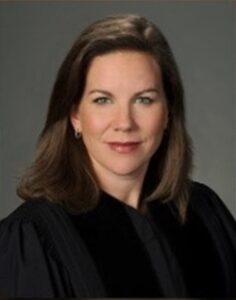
- The SECOND PANEL appears to WINDSOR to be totally corrupt.
- The U.S. Constitution does not give federal judges jurisdiction over state courts. This SECOND PANEL has pretended this isn’t one of the most-notable Constitutional provisions. Unless they didn’t bother to read the file, the FIRST PANEL did this work for them and ordered as they did in APPENDIX 133 and APPENDIX 134.
- Each justice or judge of the United Statesis required to take the following oath or affirmation before performing the duties of his or her office:
“I, ___________, do solemnly swear (or affirm) that I will administer justice without respect to persons, and do equal right to the poor and to the rich, and that I will faithfully and impartially discharge and perform all the duties incumbent upon me as ___ under the Constitution and laws of the United States. So help me God.” [28 USC 453.]
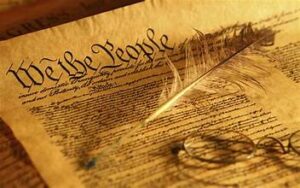
- JUDGE THOMAS W. THRASH and judges with the Eleventh Circuit have chosen to ignore the Constitution for 15 years when it comes to WINDSOR, and no one else. EVERY Federal Circuit has established precedents on this specific issue, including the Eleventh Circuit. JUDGE THOMAS W. THRASH and judges with the Eleventh Circuit have all violated their Oath of Office.
TWELFTH PARTICULARITY AS TO POINTS OF
LAW AND FACT
- When there is no legal basis for jurisdiction or an Injunction, the fact that a judge issues void orders does not make them lawful.
- The Appellate Courts have the power to correct such overwhelming violations of the Constitution and the law at any time.
- The SECOND PANEL is wrong in ignoring the VOID Injunctions that are the basis for the APPEALED ORDERS.
THIRTEENTH PARTICULARITY AS TO POINTS OF
LAW AND FACT
- Judge Thomas W. Thrash’s basis for denying WINDSOR’s APPEALS is to falsely and maliciously claim that WINDSOR did something in the past, so he no longer has his Constitutional right to file anything in any legal matter.
FOURTEENTH PARTICULARITY AS TO POINTS OF
LAW AND FACT
- The SECOND PANEL falsely claimed on P.4. of the OPINIONS [APPENDIX 133 and APPENDIX 134] that the case was removed from state court.
- JUDGE THOMAS W. THRASH never ruled on jurisdiction, and he never issued an order in response to WINDSOR’s reply and objection [APPENDIX 19 and APPENDIX 128.]

FIFTEENTH PARTICULARITY AS TO POINTS OF
LAW AND FACT:
MOM IS DEAD
- Wanda Dutschmann is dead. She was known as MOM, and WINDSOR is writing a book titled “KILLING MOM.”

- WINDSOR believes JUDGE THOMAS W. THRASH and the SECOND PANEL contributed to her death by denying WINDSOR the opportunity to save her and her Estate through Guardianship in Texas. This is one of the APPEALED ORDERS [01923 – Docket ] [APPENDIX 135].
PRAYER FOR RELIEF
WHEREFORE, WINDSOR requests that this PETITION is granted; relieve WINDSOR from the Judgments and OPINIONS dated 1/25/2024; grant WINDSOR’s APPEALS; and grant such other and further relief as is deemed just and proper.
Respectfully submitted this 7th day of February, 2024,
_______________________________
William M. Windsor
5013 S Louise Ave #1134
Sioux Falls, South Dakota 57108
352-###-####
WindsorInSouthDakota@yahoo.com

VERIFICATION OF WILLIAM M. WINDSOR
I, William M. Windsor, swear that I am authorized to make this verification and that the facts alleged in the foregoing PETITION are true and correct based upon my personal knowledge, except as to the matters herein stated to be alleged on information and belief, and that as to those matters, I believe them to be true.
In accordance with 28 USC 1746, I declare under penalty of perjury that the foregoing is true and correct based upon my personal knowledge.
This 7th day of February, 2024,
_______________________________
William M. Windsor
5013 S Louise Ave #1134
Sioux Falls, South Dakota 57108
352-###-####
WindsorInSouthDakota@yahoo.com
CERTIFICATE OF COMPLIANCE
I hereby certify that this pleading has been prepared in Times New Roman 14-point font, one of the font and point selections required by the Rules. There are 3891 words.
This 7th day of February, 2024,
_______________________________
William M. Windsor
5013 S Louise Ave #1134
Sioux Falls, South Dakota 57108
352-###-####
WindsorInSouthDakota@yahoo.com
CERTIFICATE OF SERVICE
I hereby certify that I have served the foregoing to each Defendant by Federal Express to:
RYAN K. BUCHANAN – GABRIEL A. MENDEL
UNITED STATES ATTORNEY — ASSISTANT U.S. ATTORNEY
600 United States Courthouse
75 Ted Turner Drive, S.W., Atlanta, Georgia 30303
Telephone: (404) 581-6000 — Facsimile: (404) 581-6181
Email: gabriel.mendel@usdoj.gov
This 7th day of February, 2024,
_______________________________
William M. Windsor
5013 S Louise Ave #1134
Sioux Falls, South Dakota 57108
352-###-####

